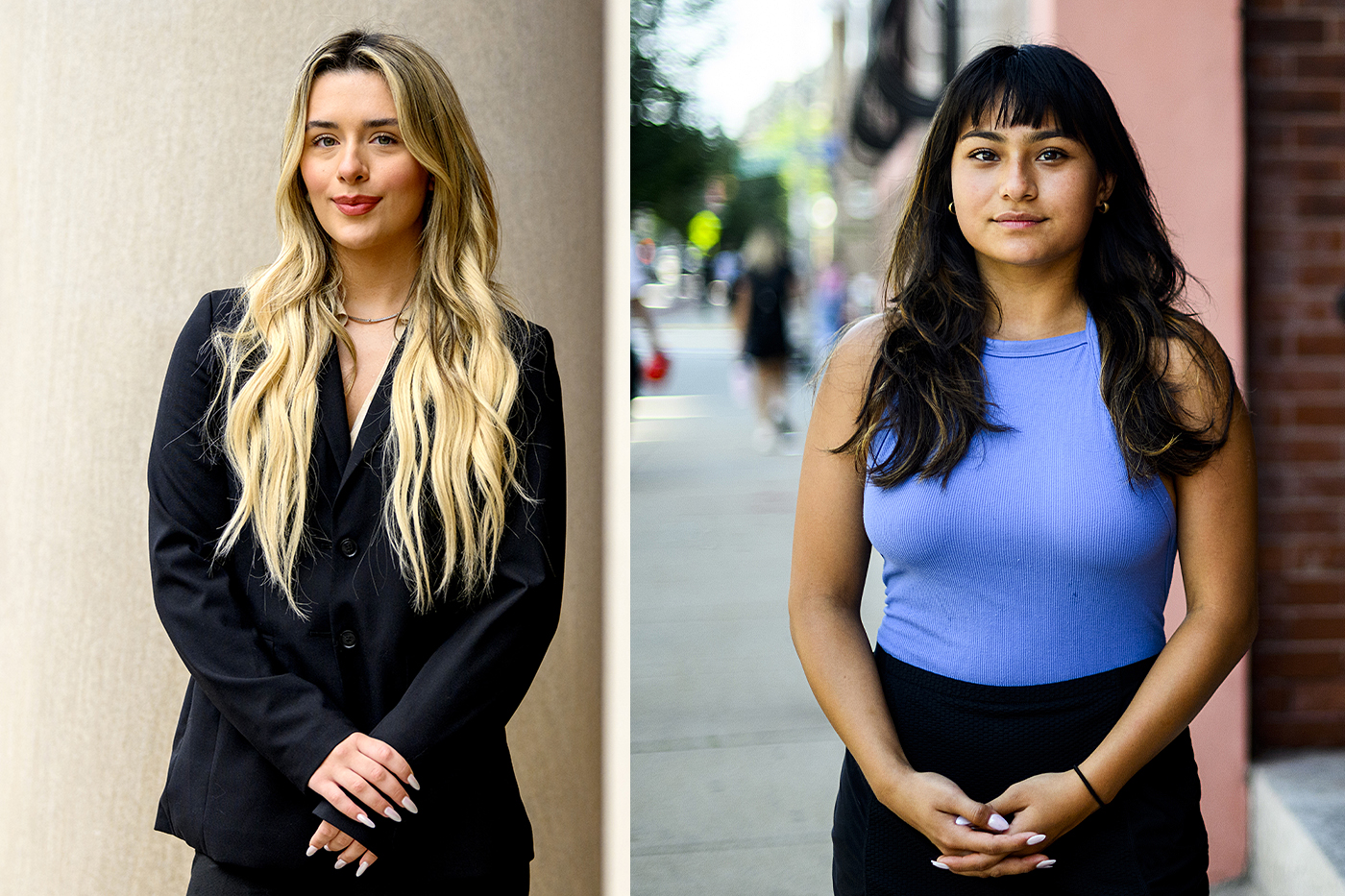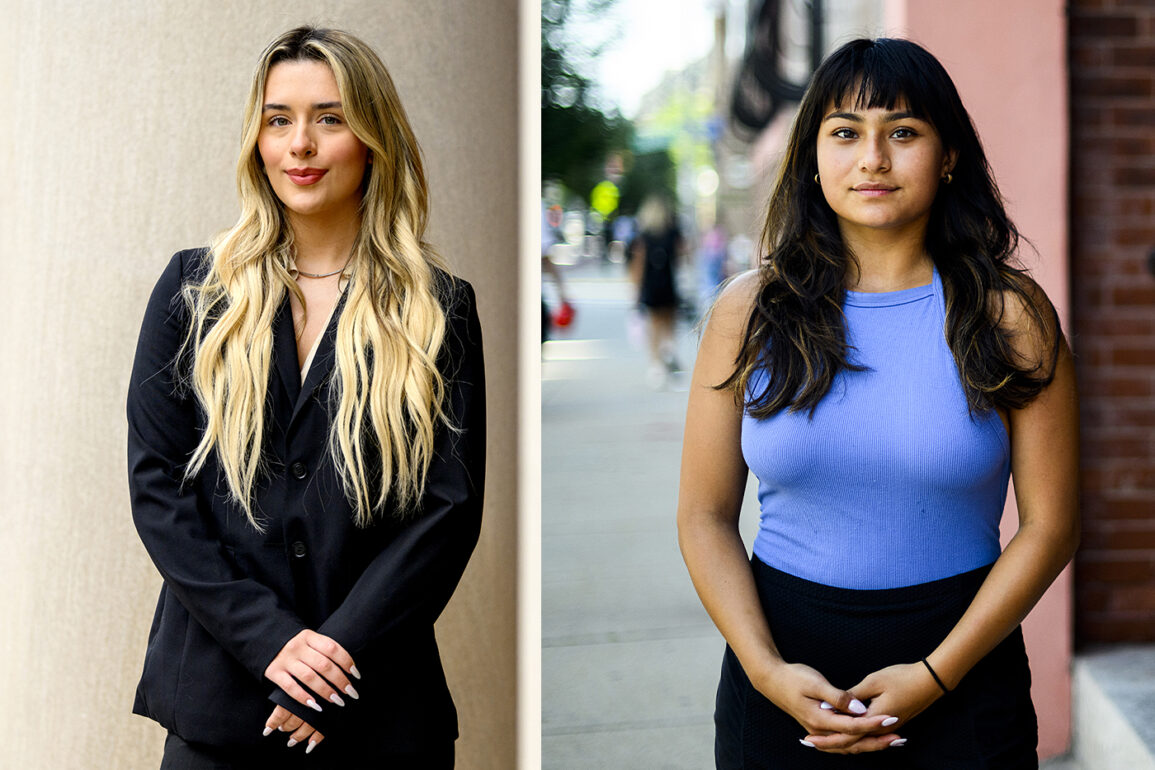
Testifying in a federal murder trial wasn’t on Sandy Alcantara’s bucket list, but thanks to her Northeastern University co-op she found herself taking the stand.
Alcantara, a third-year criminal justice and business administration student, had been working for a few months in the violent and organized crime bureau of the U.S. attorney’s office for the Southern District of New York when a paralegal texted her, “I have a surprise for you, and it’s not a cookie.”
“She said, ‘Would you want to testify?’ and I was like, ‘Yes, of course I would,’” Alcantara recalls.
As a summary witness, Alcantara was tasked with confirming that several security videos of a Washington Heights robbery and homicide corroborated one another, providing factual standing for the U.S. attorney’s case. Although she was nervous walking into the courtroom, as soon as she took to the stand, the preparation she had done and knowledge she had accumulated during her time in the office kicked in.
“I did get crossed [cross-examined], which is kind of scary, but it was really easy,” Alcantara says.
Her experience in the courtroom that day was just one of many ways she saw the criminal justice system in action during her time as a co-op. She sat in on hearings, trials and meetings with witnesses and defendants who plead guilty, listened in on jail calls, examined subpoenaed phone records and even ran into U.S. Attorney Damian Williams in an elevator.
“I got to witness so many stages of the legal proceedings, mainly hearings and trials,” Alcantara says. “I feel like you hear about it and know how it happens, but actually being able to see it really cemented it in my mind. It was a next-level understanding of it.”
And she wasn’t alone. Northeastern typically has several co-ops in the southern district’s U.S. attorney’s office, working for teams across its seven floors that tackle everything from robberies and murder to cybercrime.
Samantha Hamburg, a third-year criminal justice student, worked in the criminal bureau, which handles shootings, robberies and general crime. Assisting paralegals to the bureau’s 10 assistant U.S. attorneys, Hamburg would often sit in on pretrial witness preparation, which quickly became her favorite part of the job.
“These would range from one hour to four hours, but they were so interesting,” Hamburg says. “You would get a victim’s point of view, which was sometimes really sad, or you would get the police officer’s point of view and look at bodycam footage.”
Despite coming from vastly different backgrounds, the co-ops in the U.S. attorney’s office share a fierce belief in justice and the power of the law.
Born and raised in Phoenix by two immigrant parents, Alcantara says the law has “always been a calling for me.” Growing up in a community of people who were constantly worried about their immigration status, Alcantara says her passion for the law comes from a personal place. It came in handy during her time in New York City.
When listening in on jail calls or sitting in on witness meetings, Alcantara noticed the challenges posed by the language barrier for Spanish speakers. Sometimes she was able to step in and help with translation, when the situation was appropriate.
For Hamburg, who was raised in Las Vegas and had long been interested in criminal defense, her co-op was an opportunity to experience the other side of the criminal legal system. The months she spent in New York were enough to show her not only how rewarding the flip side of the coin could be but also how much blood, sweat and tears go into legal work at this level.
“I think it’s really cool to see how invested these people are in getting justice for people and giving them a fair trial,” Hamburg says. “It felt rewarding being there. I kept on imagining myself in their shoes, and obviously it seems like a lot of stress but it also seems like you get so much good out of it that at the end of the day it’s worth it.”
On a more practical level, watching “experienced attorneys do their thing” gave Alcantara a glimpse into legal strategy development, case preparation and courtroom tactics that goes beyond what she would be able to learn in the classroom.
Given that both Alcantara and Hamburg did co-ops in the beginning of 2023, the vortex of legal action being taken against former President Donald Trump lingered in the background — and sometimes the foreground of their experience.
Alcantara remembers how the office was buzzing when Manhattan District Attorney Alvin Bragg charged Trump with falsifying business records. She says Trump’s attorney, Todd Blanche, a former U.S. attorney, also came in to talk with the co-ops about his legal career as part of a series of conversations with experienced legal minds.
Blanche isn’t the only major figure who the co-ops encountered. They would routinely walk past FBI agents in the hallway, as well as U.S. Attorney Damian Williams. For undergraduate students who are still in the process of becoming the next generation of attorneys, it was a whirlwind experience and a reminder of why they wanted to study criminal justice in the first place.
“I learned so much about the criminal justice system and attorneys themselves,” Hamburg says. “I already was pretty sure that this was what I want to do, but I think it made me certain that this is what I want to do for my future.”
Cody Mello-Klein is a Northeastern Global News reporter. Email him at c.mello-klein@northeastern.edu. Follow him on Twitter @Proelectioneer.
This post was originally published on this site be sure to check out more of their content.







